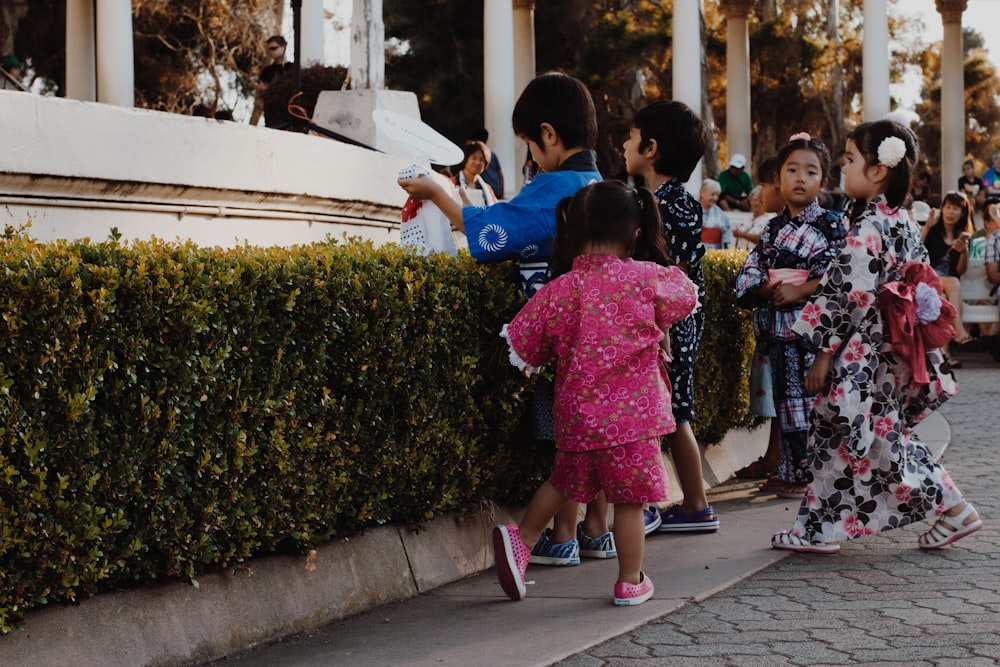TSE Asia Startup Hub, SaaS in 2024, and Rising Land Prices
The land of the Aging Sun!
The number of births in Japan dropped to a new low in 2023 by 5.1% from the previous year with more than twice as many deaths as new babies. The sky is falling!
As is often reported, Japan has the world's oldest population after Monaco, with material impact to Japanese companies - many of which are adapting to new market realities. For instance, Oji Holdings, a major public company specializing in paper products, announced plans to stop making children's diapers and switch to producing adult diapers amid a sharp decline in demand, with production dropping from a 2001 peak of around 700 million annually to 400 million today.
In Japan, births in 2023 fell for the eighth consecutive year to 758,631, a drop of 5.1%, preliminary data showed in February.
Prime Minister Fumio Kishida is pledging various policies, including providing financial assistance to families, improving access to childcare, and expanding parental leave options in an effort to stimulate the birthrate.
However - one point that often goes unmentioned in typical reporting on the topic is that Japan has actually had the highest birth rate in East Asia (bar North Korea) since around 2019 - the total fertility rate in the region was reported to be the following in 2022:
Japan: 1.26
China: 1.08
South Korea: 0.78
Taiwan: 0.87
Hong Kong: 0.7
Singapore: 1.04
Thailand: 1.3
Japan just happened to start aging earlier. The argument could be made that Japan just might have more time to adjust than a good number of its neighbors - especially with the rapid increase in foreign workers in recent years.
The Headlines
The TSE establishes the Asia Startup Hub
One Capital releases its 2024 edition of its Japan SaaS Insights report
Land prices in Japan surge to the highest point in 33 years
Japan to loosen residency rules for foreign entrepreneurs
Japan lags in efforts to gain value from human resources investments
Deep Dives
Tokyo Stock Exchange Asia Startup Hub
Aiming to respond to latent interest by private regional companies and startups, the Tokyo Stock Exchange (TSE) has announced the creation of the "TSE Asia Startup Hub" to foster an ecosystem that encourages Asian companies to list their IPOs on the TSE by offering comprehensive support in business development, fundraising, and navigating the IPO process in Japan.
This initiative seeks to facilitate collaboration between the TSE and IPO stakeholders to create a supportive ecosystem for Asian companies.
The hub will provide tailored support to meet the specific needs of each company, including business development, fundraising, and IPO preparation in Japan.
Plans are in place to recruit Asian companies for support, with announcements expected in Q3 2024.
By encouraging IPOs from Asia, the hub aims to support the growth of Asian companies through equity capital, offer Japanese investors new investment opportunities, and foster stronger ties between Japanese and Asian businesses, enhancing bilateral relations and reinforcing Japan's economic position.
One Capital’s Japan SaaS Insights 2024
One Capital, a venture capital firm with a specific focus on B2B SaaS investments, has published its latest report, "Japan SaaS Insights 2024." They outline the prevailing trends and offer forecasts for the SaaS market within Japan, extending through the year 2024. Here are the highlights:
The SaaS market in Japan is expected to exceed 2 trillion yen by 2027. If the ratio of cloud computing reaches the same level as in the U.S., the Japan market may exceed ¥5 trillion yen
In 2023, the amount of funding for SaaS startups decreased by 40%. On the other hand, the median amount of funding per company is on the rise and the market is becoming more mature.
SaaS-listed companies' fundamentals are firm, but their multiples remain flat, with companies shifting to profit
The Rule of 40 is at its highest level in the past two years as more companies shift to profit.
As a consequence of the lack of middle to latter stage firms, which traditionally served as the market's primary drivers, the average amount raised per firm (average value) decreased from the previous year to 580 million yen, compared to 610 million yen. Conversely, the median amount raised rose to 200 million yen from 160 million yen, signaling steady growth within the market.
Looking at the SaaS startup rankings, only three companies—Josys (13.5 billion yen), Caddy (11.8 billion yen), and LayerX (10.2 billion yen)—secured mega-rounds.
Land Prices Experience Highest Surge in 33 Years
Japan's land values have experienced their most significant increase in 33 years, with an average rise of 2.3% year-on-year, reflecting a notable departure from decades of deflation and paralleling upward trends in stocks and wages. This growth, highlighted by the 2024 report from Japan's land ministry, represents the third consecutive year of increases and the first time since 1991 that the growth has exceeded 2%.
Despite the recent growth, land prices remain significantly below the peak levels of Japan's economic bubble era, with current average nationwide values for residential and commercial lands at about 40% and 30% of their 1991 values, respectively.
The increase in land value has been influenced by Japan's economic recovery post-COVID-19, with enhanced foot traffic boosting retail space demand and a steady office space market as workers return to office settings.
The recovery of tourism to 80% of pre-pandemic levels and strategic investments in the semiconductor industry have contributed to rises in regional land value, particularly in areas like Aomori and those hosting new chip manufacturing plants.
The future of this growth trend faces uncertainties, including potential impacts from the end of the Bank of Japan's negative interest rate policy and shifts in investment patterns due to rising interest rates and investor focus diversifying towards other financial products like equities.
Japan to loosen residency rules for foreign entrepreneurs
Japan is set to ease the residency requirements for foreign nationals who establish businesses within its borders, recognizing a wider array of funding sources towards the capital prerequisites, a move aimed at fostering startup growth and attracting skilled foreign talent.
The Immigration Services Agency will soon update its guidelines to allow entrepreneurs to count investments raised through mechanisms like Japan's J-KISS towards the 5 million yen capital requirement, broadening the scope for qualifying for business manager residency status.
This policy adjustment is a response to the challenges faced by small startups in meeting the financial thresholds required for business establishment and residency under current regulations.
The Japanese government's initiative to relax these rules is part of a larger effort to attract foreign professionals and bolster Japan's position in the global competition for high-level talent, amid a backdrop of Japan ranking 25th out of 35 countries in an OECD talent attraction index.
The reforms are expected not only to increase the number of skilled foreign professionals in Japan but also to stimulate the domestic startup ecosystem, leading to technological innovation and regional revitalization, drawing parallels to the impact of foreign entrepreneurs in the U.S.
Japan Lags in Efforts to Gain Value from Human Resources
The disparity in total market capitalization between Japan and the United States is attributed to Japan's sluggishness in valuing investments in talent. Despite reaching all-time highs in stock prices, Japan's market capitalization significantly trails that of the U.S., prompting increased government and corporate initiatives to better leverage human capital.
Hitachi, Ltd. is set to evaluate and compensate about 50,000 IT employees based on their contributions to promoting diversity within the organization, emphasizing the importance of diversity in achieving global business success.
Nomura Holdings, Inc. rewards employees who contribute to a more inclusive workplace environment, highlighting a shift towards valuing diversity as a driver of profitability.
Data from the Cabinet Secretariat reveals that the proportion of human resources investment relative to the gross domestic product in Japan dropped to 0.1% over the five years starting in 2010, down from an average of 0.41% during the five-year period beginning in 1995, reflecting a view of investments in human capital as costs rather than drivers of value. Meanwhile, in the United States, this percentage has consistently stayed at 2% since 2008, despite the GFC.
Word on the Street
Fundraising Highlights
TYPICA Holdings, a platform that connects coffee producers and roasters, raised a ¥1.5B JPY (~$10.2M USD) Series A round from ABC Dream Ventures, FFG Venture, SMBC Venture Capital, Will, Mizuho Capital, Akatsuki, Akram, HFS, Scrum Ventures, Three Nine Shimano, Tanat Nature Lab, Delight Ventures, Mitsubishi UFJ, Tokushima Taisho Bank, Environmental Energy Investment, Daiichi Life Insurance, Shizuoka Capital
Libry, a Tokyo Institute of Technology startup that operates a digital teaching platform, raised an undisclosed Series D round from Casio Computer.
Peace Tech Lab, a startup that operates a lending and borrowing platform, raised an undisclosed Series E round from JR Shikoku
SISI, a skincare D2C brand raised an undisclosed Series A round from DG Daiwa Ventures, SBI Healthcare Fund, Chugin Capital Partners
TechMagic, a startup that provides cooking robots, raised a ¥400M JPY (~$2.6M USD) Series C round from Shoku Chukin Bank
TBM, a startup that develops a limestone-based composite material to replace plastic and paper, raised a ¥2B JPY (~$13.8M USD) Series D round from Mizuho Bank
Eichiii, a corporate ChatGPT platform provider, raised an undisclosed Series A round from SBI Holdings
BitStar, a content creator-focused agency, raised an undisclosed Series D round from MC&C Investment Limited PartnershipElephant Tech, a University of Tokyo startup that manufactures and sells single-sided FPC, raised a ¥3B JPY (~$19.7M USD) Series E round from undisclosed investors
More Food for Thought
Some additional reads from the week -
Dominos to fall? | This Week in Japanese Politics (Observing Japan)
Japan's Sakura Internet to offer startups affordable AI computing power (Nikkei)
In Japan, even Taylor Swift can't make it to the top of the music charts (Nikkei)
Japan to take another shot at a homegrown airliner, eyeing hydrogen (Nikkei)
Why is Japan changing its ban on exporting lethal weapons (Mainichi)
Japan’s Semiconductor Renaissance A Strategic Pivot Towards Technological Sovereignty (Joel Fukuzawa)
The University of Tokyo aims to "support 300 start-ups a year" (BI)
Notes from the Team
Thanks for reading and hope to see you around the sidewalks of Tokyo!
Have a question or any feedback? Let us know!
Jeremy (Investor @ GHOVC) / Kenneth (Product @ Moon Creative Lab)











